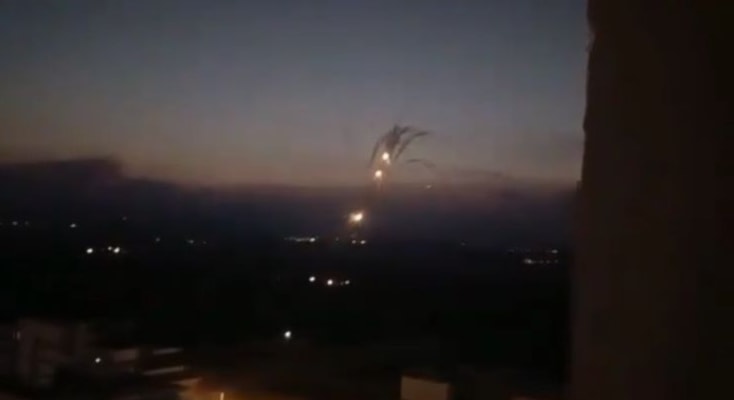 chesmotorcycle
19h ago
•
100%
chesmotorcycle
19h ago
•
100%
That document is an unorganized mess of quotes. But one thing I got from a quick skim was a claim that they provided security patrols to new slums. This apparently earned them the support of the residents, who were otherwise vulnerable to both criminals and the state. Putting aside the question of whether these claims are true or not, tactically it would certainly make sense and be a good means to build up support.
 chesmotorcycle
1d ago
•
100%
chesmotorcycle
1d ago
•
100%
I would be open to hearing about what "success" was for them. Was it that they managed to take over territory especially quickly? Or did they also succeed in building up anything that actually threatened imperialist interests?
In other words, what makes them different from "marxist" purveyors of violence like the Khmer Rouge?
Quoting again from The CIA's Shining Path:
Carlos Iván De Gregory's studies (2) published between 1985 and 1987, are a thorough and substantive investigation of the geo-economic environment and socio-political opportunities for the Shining Path's growth. He candidly denounces the “errors and limitations” of the Shining Path's “people's war” and considers the organization as a “pre-classist response” to the “destructive advance of capitalism”, similar to the Guardians of Islam and the Khmer Rouge.
 chesmotorcycle
2d ago
•
0%
chesmotorcycle
2d ago
•
0%
I noticed that's from the NYT, so I'd take that with a barrel of salt. They have every reason to misdirect us towards methodologies that don't actually threaten imperialism.
Have you seen Prolewiki's translation of The CIA's Shining Path? https://en.prolewiki.org/wiki/Library:The_CIA's_Shining_Path:_Political_Warfare#INTRODUCTION
(This isn't to say there's absolutely nothing to learn from their organization or perhaps specific tactics. But we need to be very careful about doing so, making sure we don't attribute "bloodshed" a mystical revolutionary power. The history of failed revolutions should thoroughly undermine any such conception.)
This fanatical violence is not the historical violence seen in Tupac Amaru and hundreds of rebel leaders against Spanish colonialism. It is not of the same nature as the violence that confronted opposing interests in the independence war of the last century. Nor is it the violence of a homeland's resistance war against invaders, much less the violence of a modern national liberation war, anti-imperialist and popular opposition to foreign domination. The violence exercised by Shining Path is not, therefore, a genuine expression of the deep internal contradictions of Peruvian society.
We discover, then, that it is an exogenous violence that seeks to insert itself into these contradictions, not to achieve a dialectical solution releasing internal productive and creative forces, but to stimulate destructive social forces to the maximum through the concrete execution of "strategically highly centralized and tactically decentralized plans."
Until now, the insane violence of Shining Path has been characterized particularly by a very specific execution methodology, which it has been applying in Peru since 1980, when irregular combatant teams assumed the mission of "disrupting the productive process" of this "feudal society" and "bureaucratic capitalism."
 chesmotorcycle
2d ago
•
100%
chesmotorcycle
2d ago
•
100%
I'd be curious how their position compares to Che's (which, in spite of my username, I'm no expert in). My understanding is that, after witnessing the success of the Cuban revolution, he thought similar tactics would be widely applicable elsewhere.
The method was essentially:
- Start a small scale guerrilla war
- Earn support and recruits from nearby
- Use this to expand the war
Unfortunately, history showed things were not so easy. Che's efforts failed in Congo, and led to his death in Bolivia.
(FWIW, I'm drawing this from my memory of Anderson's Che Guevara.)
 chesmotorcycle
3d ago
•
100%
chesmotorcycle
3d ago
•
100%
May his death be another spark in the fire that burns down the entity.
 chesmotorcycle
7d ago
•
100%
chesmotorcycle
7d ago
•
100%
FAFO
The Moscow Region Arbitration Court on Wednesday froze funds of the U.S. Bank of New York Mellon (BK.N), opens new tab held by the Russian branch of Citibank (C.N), opens new tab as well as funds of JP Morgan Chase held by its Russian affiliate of Morgan Chase Bank amounting in total to about $372 million.
 chesmotorcycle
7d ago
•
100%
chesmotorcycle
7d ago
•
100%
It's Roo! :D
 chesmotorcycle
7d ago
•
100%
chesmotorcycle
7d ago
•
100%
And a glorious week to you too!
 chesmotorcycle
1w ago
•
100%
chesmotorcycle
1w ago
•
100%
The maps alone are fucking heartbreaking.
 chesmotorcycle
2w ago
•
100%
chesmotorcycle
2w ago
•
100%
the Communist Party rejects gender self-ID as the basis for sex- based entitlements in law to women’s single-sex rights, spaces and facilities. The Party will continue to oppose any proposed legislation – whether at Scottish, Welsh or British level – that seeks to enact such a provision.
We call for ‘sex’ as a protected characteristic under the 2010 Equality Act to be defined as ‘biological sex’.
 chesmotorcycle
2w ago
•
100%
chesmotorcycle
2w ago
•
100%
So cute!
 chesmotorcycle
2w ago
•
100%
chesmotorcycle
2w ago
•
100%
It is a revolution of victory or martyrdom.
Hasta la victoria siempre!
 chesmotorcycle
2w ago
•
100%
chesmotorcycle
2w ago
•
100%
Christopher Walker voice: you, too, Oppo, should have a nice, week
 chesmotorcycle
3w ago
•
100%
chesmotorcycle
3w ago
•
100%
 chesmotorcycle
3w ago
•
100%
chesmotorcycle
3w ago
•
100%
 chesmotorcycle
3w ago
•
100%
chesmotorcycle
3w ago
•
100%
And what "tactics" does the Washington Post say the Russian Army is using? Meat wave, meat wave, MEAT WAVE.
 chesmotorcycle
3w ago
•
100%
chesmotorcycle
3w ago
•
100%
 chesmotorcycle
3w ago
•
100%
chesmotorcycle
3w ago
•
100%
All of zem!
 chesmotorcycle
3w ago
•
100%
chesmotorcycle
3w ago
•
100%
You should be able to access their backup: @RNN_Backup
 chesmotorcycle
3w ago
•
100%
chesmotorcycle
3w ago
•
100%
Lots of gems here.
When disaster and misfortune strike an empire, they tend to do so in droves. This is even more true if the empire is suffering from military overstretch, financial crisis, or a social and political crisis, and right now America is in the middle of all three at once. And when a previously dominant empire weakens in such an obvious way, the various enemies of that empire generally pick up on the message. This is particularly true if they have formed a balancing coalition where they coordinate with each other. In 2024, America’s most fearsome allies – China, Russia, Iran, North Korea – are tied together by a mix of formal and informal alliance structures, which makes any strategy of divide and conquer impossible. That makes the current conflagration between Israel and Lebanon just the latest and most urgent among America’s various bleeding wounds.
Events there are already slipping from Washington’s grasp. Like the rest of us, they are reduced to a spectator, watching on as Israel assassinates the leadership of Hezbollah and bombs Beirut, inevitably inviting some sort of retaliation from Iran. America’s ability to intervene directly is quite limited, not least because, thanks to its commitments across the Pacific and Gulf, the US Navy is currently suffering from a massive crisis of readiness and would struggle to supply the carriers necessary. The enemy itself does not really fit the American way of war, either. With around a hundred thousand fighters, many of whom have gained serious combat experience over the last decade fighting against Isis, Hezbollah is no mere militia or disorganised terror group. Having prepared for almost two decades for a conflict with Israel (and by extension the United States, as both countries rely heavily on airpower), Hezbollah now commands the most formidable network of air defence tunnels in the world. Even if the United States wanted to pick a fight in southern Lebanon today, this number of enemy combatants, fighting from prepared positions in familiar terrain, probably makes a decisive military solution to the situation nearly impossible.
But the United States most certainly doesn’t want this fight [with Lebanon]. The American position since 7 October has officially urged a return to a Middle Eastern status quo that doesn’t involve the risk of a massive region-wide conflagration. The region is refusing to obey. In the scenario unfolding instead, the US can only stand to lose.
America has thus far had very little luck restraining Israel or convincing it to agree to a ceasefire. It’s clear that this is at least in part due to the obvious weakness being displayed at the top of the American political system, with a lame-duck president that struggles to even chair cabinet meetings. As the proximity between America and its enemies grows, and the risk of escalated conflict intensifies, the demands on the United States by its allies keep growing in scope and urgency. America is now directly on the hook for not one but two wars, one in Europe, one in the Middle East. Neither Ukraine nor Israel have the economic or military capacity to survive without America’s direct and indirect support. In the case of Ukraine, America’s financial and military aid to that country is roughly on par with the value of America’s lend-lease program to the Soviet Union during the Second World War, once dollar inflation is taken into account. Even with this massive deluge of American aid, Ukraine is now in a very dire situation on the battlefield, suffering from large shortfalls of both men, money, and ammunition with which to continue the war. In the case of Israel, the country is simply far too small to sustain its oversized military without outside support, and the United States is now using much of its strategic airlift to constantly fly in new shipments of bombs and spare parts. This will only be exacerbated further by conflict in Lebanon, which will make incredible new demands of the IDF in terms of personnel and materiel.
The United States today therefore finds itself in a very dangerous situation indeed. Less than ten years ago, talk about American decline was confined to a small, Tea Party-esque fringe. Problems with the military were widely known (especially after the failed War on Terror), the fiscal situation was growing increasingly unsustainable, and the political system was becoming more and more unstable in the wake of the great 2008 financial crisis. But talk of outright decline was generally seen as way too alarmist. These days, there’s precious little left of that kind of optimism. Politically, America is more divided than at any point in the last 50 or 60 years; economically, the government debt is now growing at an exponential rate. Interest payments consume a larger part of the federal budget than the entirety of the US military. With continuing record-level deficits, this is a problem that will only get worse. It is only a matter of time before the bond markets and Wall Street respond to what is clearly an intractable situation.
This is all to say that American decline is now no longer controversial; if anything, it is becoming a daily fact of global life. When the Ukraine war started, almost everyone in the West assumed that the sheer imbalances in GDP figures would make any real Russian headway impossible. Theirs was an economy smaller than that of Italy, up against the collective might of the entire free world. Two and a half years into that conflict, however, it turns out that GDP figures don’t count for as much as they used to, and neither the collective West nor America itself is even capable of producing enough ammunition to supply the Ukrainian side. Artillery shells, tanks, rockets, air defence missiles – in area after area, the Western arsenal is now increasingly bare, and it seems doubtful that we will be able to afford to replace the weapons that have been lost.
In both the case of Israel and Ukraine today, we also see a very dangerous ratchet effect brought on by American decline. In both conflicts, America’s clients now clearly seem intent on constant escalation in order to draw America further into war. The Ukrainians are running out of their own resources, and the weapon shipments from the West are starting to slow down. Their only real hope for victory might be to involve America directly in the war, transferring much the costs of this conflict onto their imperial patron. Needless to say, there is very little appetite for this from a Washington already suffering from Zelensky fatigure. The Israelis, for their part, are no doubt aware of two basic facts: the United States is getting weaker over time, and Israel’s enemies are slowly getting stronger. The longer they wait, the more unfavourable their situation will become. Today, an outright war against Iran or Lebanon may be winnable, if the Americans could be made to shoulder much of the burden. Ten years from now, America might be too weak to offer much help even if it wanted to.
Without really noticing it, America has gotten caught up in a vortex created by its own various allies and clients, a vortex that is now rapidly sapping it of money, weapons, and energy. In a recent video conference call Jake Sullivan, national security advisor to Joe Biden, candidly admitted that he had arranged for Ukraine to receive all of the patriot missiles that were supposed to go to other countries this year. In other words, in order to help Ukraine, the US is effectively willing to suspend arms delivery contracts to dozens of other allies, who in some cases – like Saudi Arabia or Japan – have a very practical need for interceptors themselves. But of course, whether America is seen as an unreliable partner for arms contracts isn’t Ukraine’s priority in its fight against Russia. Similarly, America is borrowing billions of dollars to support Israel. The fact that this extra borrowing is only hastening a day of economic reckoning for the US is not really Israel’s first concern either. This unhappy dynamic that has trapped the US is quite hard to escape from. It is a true dilemma: the very act of trying to banish the perception that the American empire is on its way out is ironically just hastening the decline.
A large war in the Middle East looks increasingly likely at this point, with the current conflict between Lebanon and Israel possibly just a secondary or even tertiary front in that war. America has spent more than half a year trying to prevent things from getting to this point. But this is often the fate that awaits ailing empires at the end of their rope. The most important domestic question that remains is this: what will happen when a large enough slice of the American citizenry decide they want out? Neither Kamala Harris nor even Donald Trump seriously promise to put an end to foreign entanglements. American body politic is already close to falling apart as its citizenry lose complete faith in their state and their political elites. As America’s allies continue to expect the US to do everything, be everywhere, and pay for everyone, this basic rot at the heart of the American republic will only continue to spread.
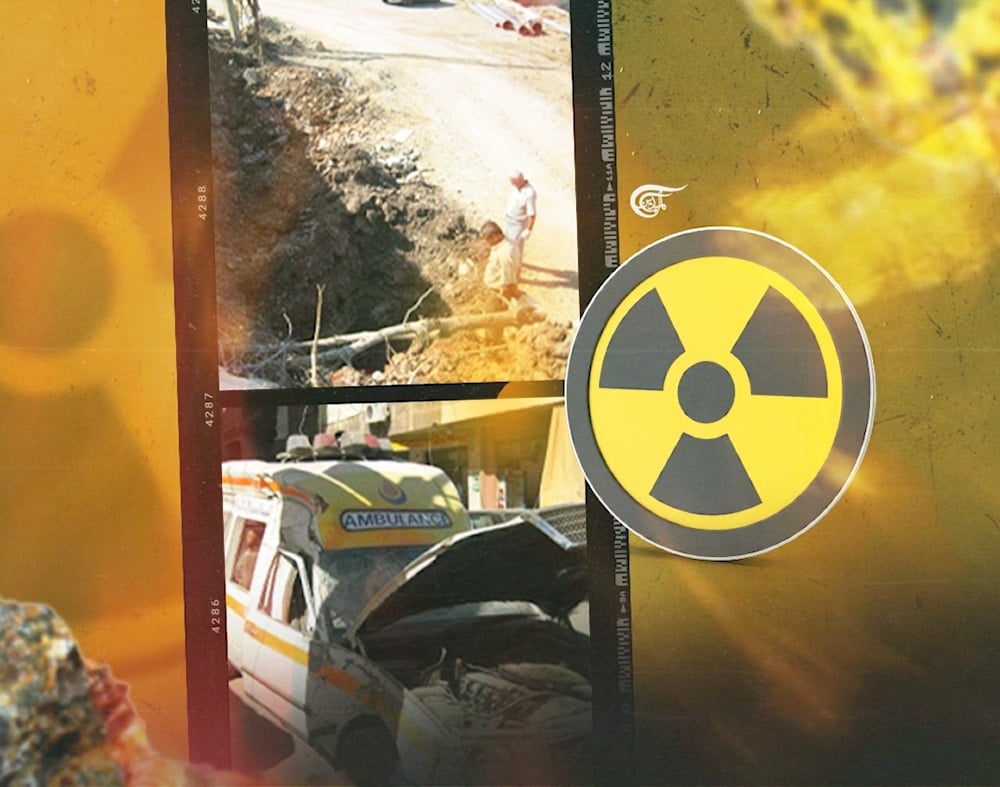 english.almayadeen.net
english.almayadeen.net
"Israel" has, since its attacks on Lebanon in 2006 and those on Gaza in 2008 and 2014, used a new nuclear weapon, one which kills with a high temperature radiation flash and with neutrons. ... "Israel" and the USA (at least) have developed what is almost certainly a mini-neutron bomb. "Israel" is using it in Gaza. And may be using it in Lebanon (again). --- EDIT: some important criticisms of the author have been raised in the comments. It's quite possible he's speculating too much from insufficient evidence. However, he does offer the following, which we shouldn't dismiss either: 1. Enriched Uranium was [found in Gaza](https://www.nature.com/articles/s41598-021-02559-7) according to this *Nature* article. 2. A crater from an "israeli" bomb in Lebanon was found to be radioactive (original source was an unnamed Lebanese newspaper in 2006, but it was also discussed in [this](https://www.independent.co.uk/voices/commentators/fisk/robert-fisk-mystery-of-israel-s-secret-uranium-bomb-6230359.html) article in *The Independent*). 3. Samples from the crater were found to contain enriched uranium (independently verified by the Harwell laboratory, as mentioned by *The Independent* article in 2).
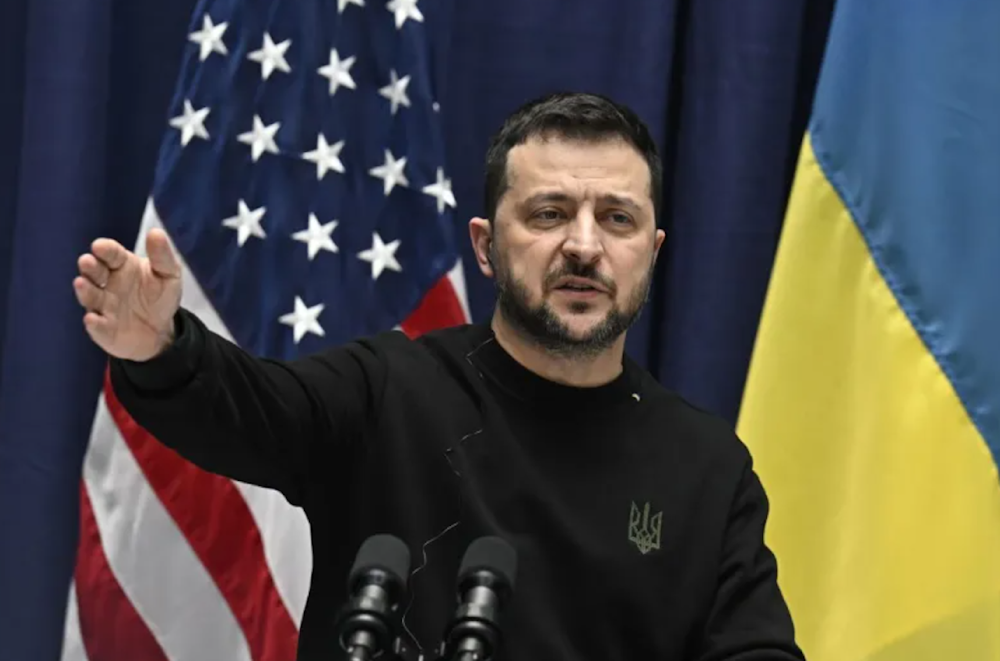 english.almayadeen.net
english.almayadeen.net
According to Russia's Foreign Intelligence Service (SVR), the US intends to launch a campaign to undermine Ukrainian President Volodymyr Zelensky in order to replace him with a more malleable person. According to the agency, former Interior Minister Arsen Avakov is being considered for the job. In a statement released on Tuesday, the SVR stated that "the American elite" is becoming increasingly unhappy with Zelensky as politicians on both sides of the aisle begin to "doubt the targeted spending of billions of dollars in military aid to Kiev." Officials stated that Zelensky is engaging in "crazy steps" that threaten escalation "far beyond Ukraine," adding that Kiev “has moved to feverish action” as Zelensky tries to stay in power after the end of his official term in May.
 www.aljazeera.com
www.aljazeera.com
There's no useful analysis here, since the author hasn't bothered to ask any protestors why they're protesting, but here's hoping these are more steps towards a [Red Africa](https://lemmygrad.ml/post/5153940). Countries with active or recent protest movements mentioned in the article include Kenya, Uganda, Zimbabwe, Angola, Eswatini, Namibia, Mozambique, and South Africa.
 monthlyreview.org
monthlyreview.org
Some great information and critique here. Dominant western perspectives, even when dubbing themselves "decolonial", still paint Africa as the Dark Continent, whose inhabitants are powerless against external forces. Instead, Vijay Prashad and Mikaela Nhondo Erskog argue, we need to center the (re-)emergence of Red Africa, the indigenous efforts towards socialism.
 english.almayadeen.net
english.almayadeen.net
French President Emmanuel Macron publicly asked residents of New Caledonia on Tuesday to lift the barricades that had closed roads for the past month, following widespread and violent unrest. According to French media, Macron called the situation "unacceptable" after condemning it and called for "the firm and definitive lifting of all blockades." Local media circulated a letter by Macron calling on New Caledonians to engage in dialogue. "It always takes longer to build than to destroy," he was cited as saying, stressing the need for constructive efforts toward resolution. Massive protests and rallies broke out on the Pacific archipelago on May 13 after a voting reform that would allow non-native long-term residents of the island to participate in local polls. The Indigenous Kanaks on the archipelago, driven by the fact that the move would dilute their input on decisions on their native lands, led demonstrations against the French government. **Reform plan suspended** The territory is located more than 17,000 kilometers from mainland France in the southern Pacific Ocean and is comprised of several islands, yet Paris has relentlessly asserted its right over the territories. After deploying troops under the guise of police control in the South Pacific territories, Macron has suspended the reform plan. Macron justified the decision by stating "ambiguity" ahead of the French elections, adding that it was to prioritize "dialogue in the field and restoring the order." "I have pledged that this reform won’t be pushed through with force today in the current context and that we are giving ourselves a few weeks to allow for calm, the resumption of dialogue, with a view to a global agreement," he said two weeks ago.
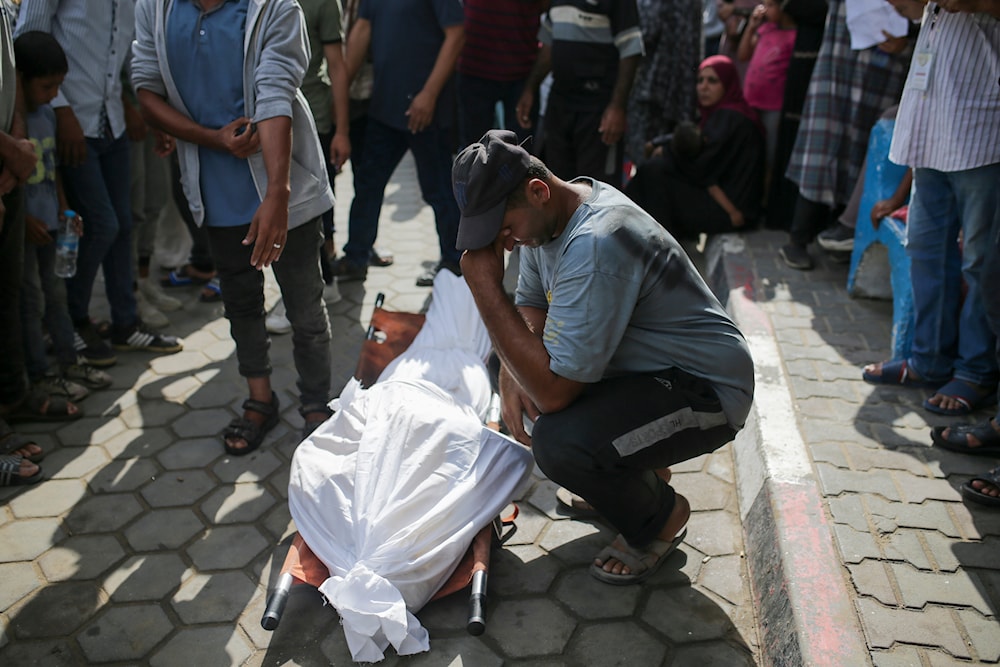 english.almayadeen.net
english.almayadeen.net
The initial phase calls for an immediate and comprehensive ceasefire, the release of captives including women, the elderly, and the wounded, the return of the remains of some deceased hostages, the exchange of Palestinian prisoners, and the withdrawal of Israeli forces from populated areas in Gaza. This phase also includes the safe and efficient distribution of humanitarian aid across Gaza, ensuring that all Palestinian civilians in need receive assistance, including housing units provided by the international community.
 english.almayadeen.net
english.almayadeen.net
Yankee pigs go home! > The Yemeni Armed Forces targeted the flagship of the United States Carrier Strike Group 2, the USS Dwight D. Eisenhower, in response to multiple American-British strikes on Yemen. > > In a statement, the spokesperson of the Yemeni Armed Forces (YAF), Brigadier General Yahya Saree, announced that the YAF's Rocket Force and Navy launched a composite strike on the aircraft carrier. > > The strike consisted of multiple anti-ship ballistic missiles and cruise missiles, which dealt direct and precise hits to the USS Eisenhower, Saree explained. The YAF's attack on US Navy assets deployed in the region comes in response to 13 airstrikes that targeted both civilian and military areas across Yemen, leading to 58 casualties. > > In detail, Saree said that the strikes in Hodeidah alone killed 16 people and injured another 41, including civilians and military personnel. > > Saree reiterated that the YAF will "not hesitate to directly and immediately respond to any renewed aggression on Yemeni soil."
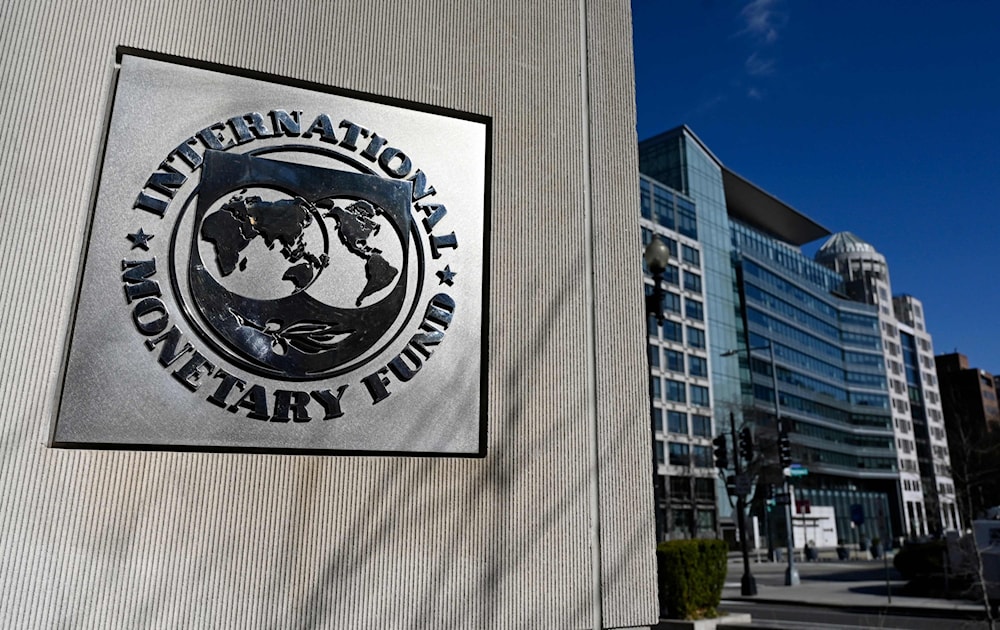 english.almayadeen.net
english.almayadeen.net
See? China is going to crash for real this time. Just you wait, tankies! > But the IMF noted that, by 2029, China's economic growth is expected to decline to 3.3 percent, citing aging and slower productivity growth.
 english.almayadeen.net
english.almayadeen.net
In a congressional testimony on Wednesday, US Commerce Secretary Gina Raimondo emphasized the potentially severe consequences for the United States if China were to decide to reunify with Taiwan. Raimondo, showcasing that the US is only interested in Taiwan's "security" because of its importance in the microchip sector, highlighted the critical role of Taiwan in microchip supply and production, stressing the decades-long collaboration between Taipei and Washington in this domain. Speaking before the US House Appropriations Subcommittee on Commerce, Justice, and Science, Raimondo underscored the significance of Taiwan's contribution to the microchip industry. She pointed out that the United States currently relies heavily on Taiwan Semiconductor Manufacturing Company (TSMC), procuring 92% of its leading-edge chips from the Taiwanese firm.
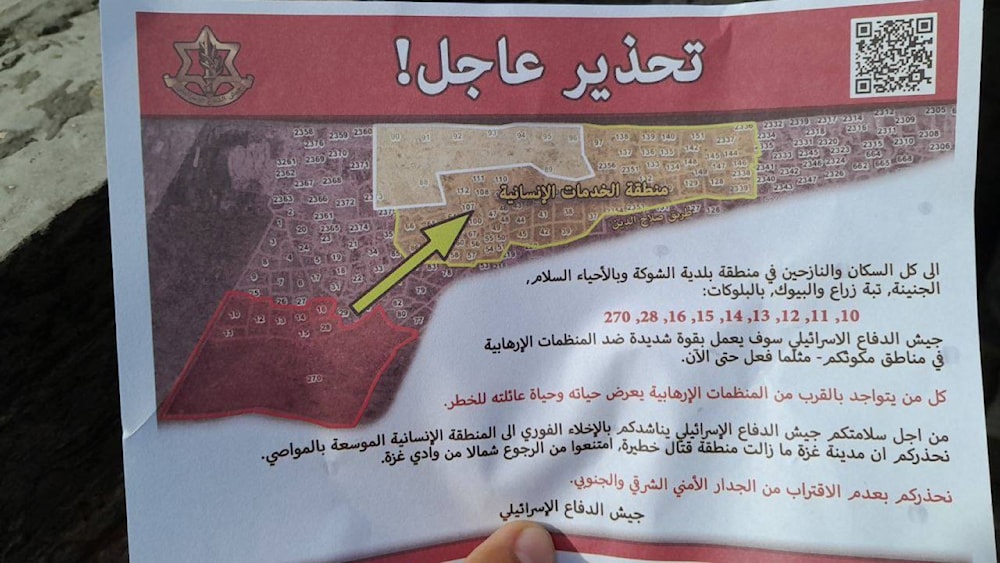 english.almayadeen.net
english.almayadeen.net
The Israeli occupation forces officially began, on Monday, the forceful displacement of the already-displaced Palestinian people currently seeking shelter in Rafah, which had been designated by the Israelis as an alleged "safe zone" early in the war.
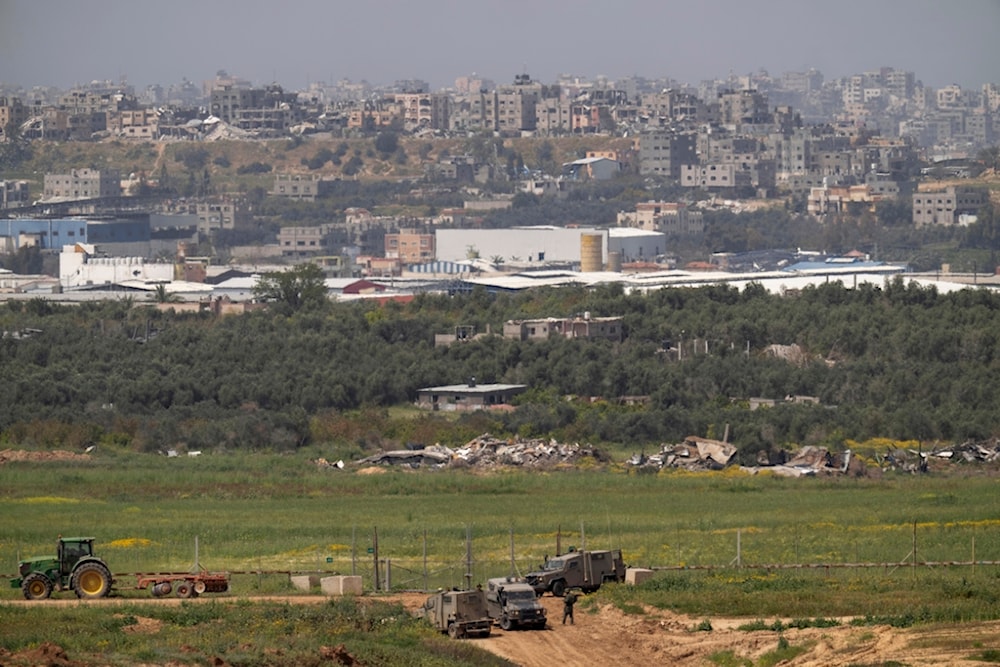 english.almayadeen.net
english.almayadeen.net
Israeli news broadcaster Channel 12 on Sunday reported that a total of 30 servicemembers in the Israeli Occupation Forces (IOF) refused to comply with orders to ready the army for a ground invasion of the city of Rafah. The broadcaster cited fatigue as the primary reason for the refusal, stating that these servicemembers feel unable to continue fighting in Gaza after nearly 7 months of combat.
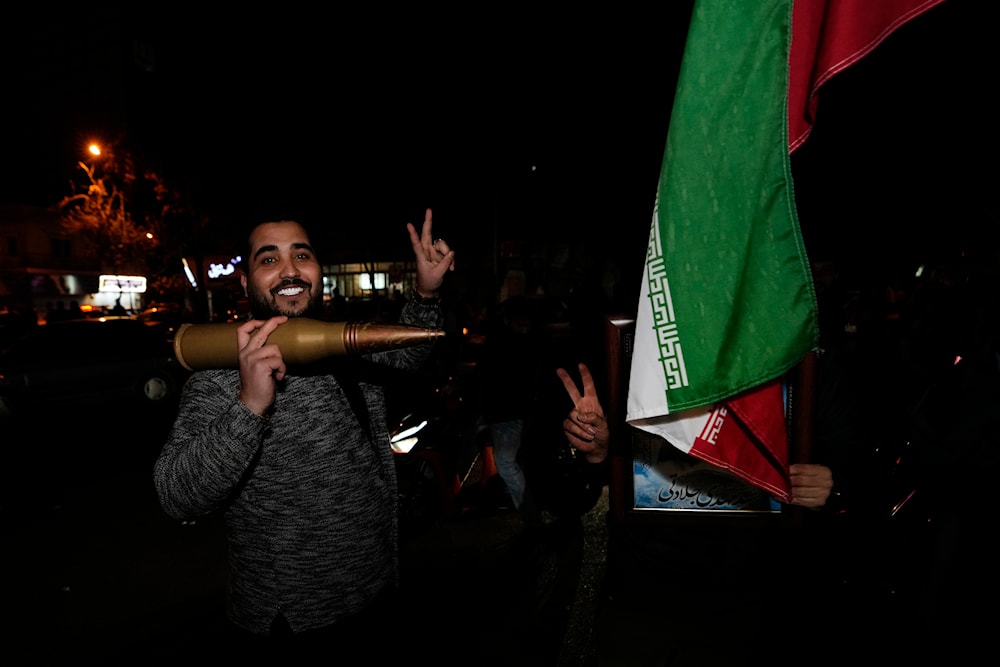 english.almayadeen.net
english.almayadeen.net
**Iran imposed itself as major regional player** Scott Ritter, a writer and former Marine Corps officer, told Al Mayadeen that Iran sent a message to the United States that it is capable of breaching the Israeli occupation's sophisticated air defense. He added that Washington is beginning to see that its capabilities in the Middle East are declining, and this began when Iran shot down a US drone under former US President Donald Trump. He pointed out that one of the indicators of the decline of the US capabilities in the region has been its inability to stop Yemen's operations in the Red Sea. Ritter said the United States could no longer do anything in the region, while Iran, on the other hand, is developing its capabilities and is able to harm Washington. Ritter went on to ask: What does it mean for the United States to tell the Israeli occupation that it would defend it but would not support it in an attack on Iran?
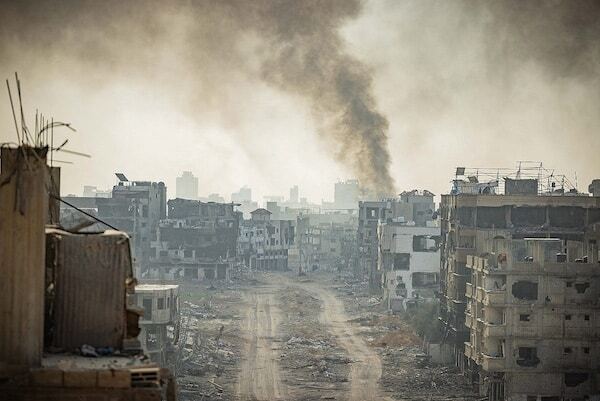 mronline.org
mronline.org
...during the first weeks of the war, the army almost completely relied on Lavender, which clocked as many as 37,000 Palestinians as suspected militants–and their homes–for possible air strikes.
 english.almayadeen.net
english.almayadeen.net
Isn'treal may be reaching a breaking point, at least in terms of its ability to escalate further > ...total losses incurred by the Israeli economy amount to a whopping $6 billion since October 7, 2023. > When comparing the median cost of reservists to that of regular troops, a huge gap in costs arises, as an individual from the former group costs "Israel" an average of $13,000 while the latter costs $7,500. See also: https://english.almayadeen.net/news/politics/israeli-military-demands-14-500-new-recruits--situation--not
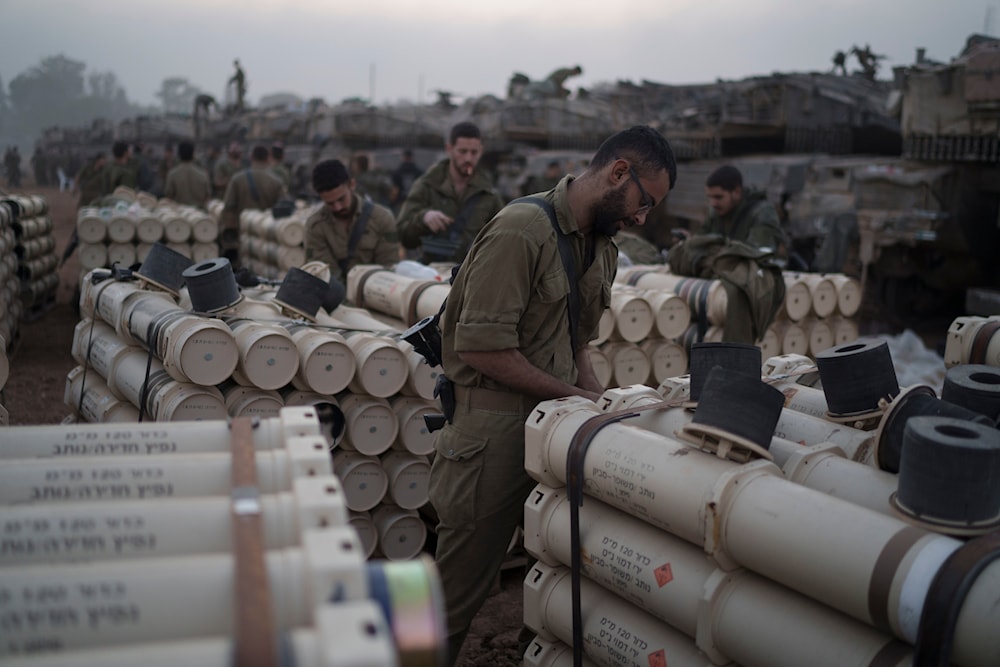 english.almayadeen.net
english.almayadeen.net
The ongoing war on Gaza and confrontations with the Lebanese Resistance on the northern front has caused a shortage of ammunition and supplies within the Israeli occupation forces' arsenal, Israeli broadcaster Kan reported on Friday.
 english.almayadeen.net
english.almayadeen.net
Hehe
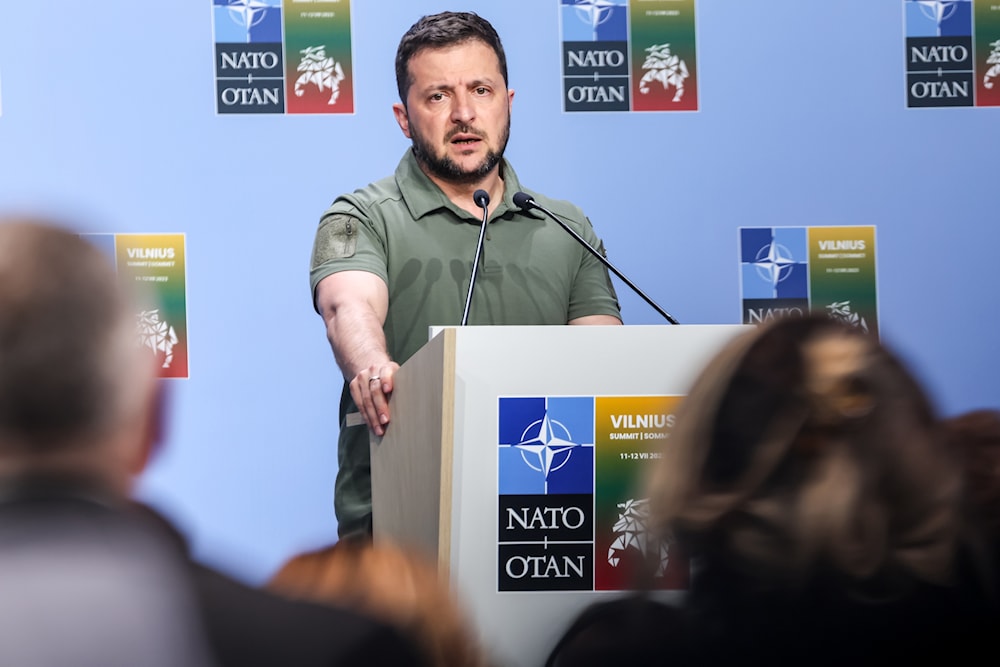 english.almayadeen.net
english.almayadeen.net
Ukraine's Western allies were “overly optimistic" about the war in 2023 and assumed that providing Kiev with the required ammunition and training would lead to victory, chief of the NATO Military Committee Admiral Rob Bauer told the Financial Times on Sunday. ... For now, the West’s plan is to “keep the Ukrainian military from collapsing".
Are there any books folks would especially recommend for young kids? I found [Tales for Little Rebels](https://nyupress.org/9780814757215/tales-for-little-rebels/) quite good, but also somewhat dated.
